-

Aug
31
Interpretive Summary: USDA to increase competition in agriculture sector

The United States Department of Agriculture (USDA) has announced a partnership with attorney generals in 31 states and the District of Columbia to enhance competition and protect consumers in food and agricultural markets, including in grocery, meat, and poultry processing, and other markets. The partnership will assist state attorneys general in tackling anticompetitive market structures in agriculture and related industries that are raising prices and limiting choices for consumers and producers.
Read more
-

Aug
24
Interpretive Summary: The effects of stocking density on behavior and biological functioning of penned sheep under continuous heat load conditions

There is a high demand for Australian sheep to be exported to the Middle East, and for live export voyages which depart during an Australian winter, heat, and humidity increase rapidly as ships cross the equator and approach destination countries. Concern about sheep becoming heat stressed during these voyages has increased, and industry attention has focused on the potential role of stocking density in determining heat stress risk in this context.
Read more
-

Aug
24
Interpretive Summary: Methane emissions and 13C composition from beef steers consuming binary C3–C4 diets
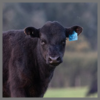
Investigating methods for reducing enteric methane emissions from ruminant livestock are important to reduce environmental impacts and improving production efficiency through reduced energy losses. This experiment evaluated the effects of increasing proportion of rhizoma peanut hay (a C3 legume) into bahiagrass hay (a C4 grass) on intake and methane production in beef steers.
Read more
-

Aug
24
Interpretive Summary: Duration of ergovaline exposure influences serotonin-mediated vasoactivity of bovine mesenteric vasculature
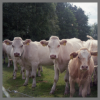
Consumption of ergot alkaloids found in endophyte-infected tall fescue can lead to symptoms of fescue toxicosis, such as vasoconstriction, in ruminant livestock species. Ergovaline is one of the primary ergot alkaloids responsible for causing vasoconstriction when toxic varieties of fescue are consumed.
Read more
-

Aug
24
Interpretive Summary: Endocrine changes during the peripartal period related to colostrogenesis in mammalian species
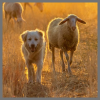
This manuscript reviews and compares hormonal and functional changes occurring in the conceptus (embryo and its extra-embryonic membranes) and their effects on the mammary gland during development from pregnancy to colostrum formation and milk production in multiple mammalian species. Declining activity of gestagens at the end of pregnancy is crucial to allow for both parturition and onset of milk production in most mammals.
Read more
-

Aug
24
Interpretive Summary: Metagenomics analysis reveals the performance of homo- and heterofermentative lactic acid bacteria in alfalfa silage fermentation, bacterial community, and functional profiles

Current studies are aimed towards utilizing certain lactic acid bacteria (LAB) strains with high-yielding beneficial organic acid production for enhancing the quality of forages during preservation (otherwise known as ensiling) and to improve animal feed production.
Read more
-

Aug
24
Interpretive Summary: Melatonin supplementation promotes muscle fiber hypertrophy and regulates lipid metabolism of skeletal muscle in weaned piglets
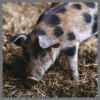
Due to its extensive biological functions, melatonin has been widely used in animal production in recent years. The purpose of this study was to investigate the effects of melatonin on growth performance, muscle development, and lipid metabolism of weaned piglets.
Read more
-

Aug
17
Interpretive Summary: Forages and Pastures Symposium: revisiting mechanisms, methods, and models for altering forage cell wall utilization for ruminants
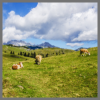
The underlying principles of forage cell wall utilization by ruminants have been known for over 50 years, but a significant amount of knowledge of the structure and synthesis of critical components of the plant cell wall, mechanisms and methods to alter its digestibility, and assessment techniques to quantify its components as well as their fermentability has been accumulated in the last 30 years.
Read more
-

Aug
17
Interpretive Summary: Effects of dietary zinc/copper ratios on the metabolism of zinc and copper in weaned pigs
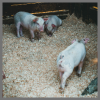
Zinc oxide and copper sulfate are commonly used as growth promoters and alternatives to antibiotics to prevent diarrhea in weaned piglets but their use in post-weaning pigs diets has been challenged due to environmental issues and concerns related to bacterial resistance to antibiotics and heavy metals.
Read more
-

Aug
17
Interpretive Summary: Dietary supplementation of Ocimum gratissimum improves growth performance and immune response in broilers under high ambient temperature

Ocimum gratissimum (OG) was found to have immunity boosting effect on Taiwan country chickens and broiler chickens raised in moderate ambient temperature in previous studies, and the current study investigates its potential on broilers raised in high ambient temperature.
Read more
-

Aug
17
Interpretive Summary: Relationships between body- and udder-related type traits with somatic cell counts and potential use for an early selection method for water buffaloes (Bubalus bubalis)
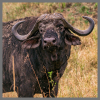
Some type traits (TTs) have been reported to affect somatic cell count (SCC) in bovine milk, which result in mastitis to some extent, but the correlation between SCC and TTs of water buffalo has been poorly understood. Here, a total of 1908 records from 678 buffaloes were investigated.
Read more
-

Aug
17
Interpretive Summary: Transcriptomic analysis of ovarian follicles uncovers the crucial genes relevant to follicle selection and preovulatory hierarchy in hens

Chicken ovarian follicle development undergoes follicle recruitment, prehierarchy, follicle selection, preovulatory/hierarchy, and finally ovulation. The follicle selection and preovulatory hierarchy play a vital role in egg production of hens. However, underlying the mechanism of the key genes involved in these developmental events remains largely unknown.
Read more
-

Aug
17
Interpretive Summary: Protective effects of genistein on the production performance and lipid metabolism disorders in laying hens with fatty liver hemorrhagic syndrome by activation of the GPER–AMPK signaling pathways
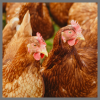
Fatty liver hemorrhagic syndrome (FLHS) is a nutritional and metabolic disease that seriously threatens the health and performance of laying hens, which is characterized by hepatic steatosis and lipid metabolism disorders. As an isoflavone phytoestrogen, genistein (GEN) exerts many beneficial functions, including alleviating lipid metabolism disorders and anti-inflammatory properties.
Read more
-

Aug
17
Interpretive Summary: Reproductive microbiome and cytokine profiles associated with fertility outcomes of postpartum beef cows
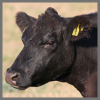
Efficiently producing cattle to feed a growing population can come with many challenges. A few challenges occur soon after a cow has given birth, and subsequent reproductive performance can be impacted. Bacteria within the reproductive tract can trigger an immune response and together play a role in affecting fertility in cows.
Read more
-

Aug
10
Interpretive Summary: Evaluating differences between formulated dietary net energy values and net energy values determined from growth performance in finishing beef steers
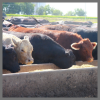
Feedlot growth performance and carcass data can be used to estimate dietary net energy values. The degree to which growth performance-predicted values agree with tabular energy values for feeds is an indication of how accurately the California Net Energy System can be used to predict cattle growth performance.
Read more
-

Aug
10
Interpretive Summary: Calves severely affected by bovine respiratory disease have reduced protection against histone toxicity and exhibit lower complement activity
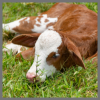
Bovine respiratory disease (BRD) remains the leading cause of feedlot calf sickness and death. In respiratory disease affecting humans and mice, major tissue damage is caused by release of histones. Histones are proteins found in the nucleus of cells that condense DNA, however, cells that become damaged release histones extracellularly.
Read more
-

Aug
10
Interpretive Summary: Invited review: integration of technologies and systems for precision animal agriculture—a case study on precision dairy farming
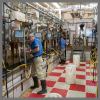
Precision technologies are revolutionizing animal agriculture by enhancing the management of animal welfare and productivity. To fully realize the potential benefits of precision livestock farming (PLF), the development and application of digital technologies are needed to facilitate the responsible and sustainable intensification of livestock production over the next several decades.
Read more
-

Aug
10
Interpretive Summary: Impact of liquid diet supplementation while suckling and weaning age on nutritional status, intestinal health, and immunity of piglets pre- and post-weaning
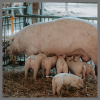
Antimicrobial resistance, induced by increased usage of antimicrobials, is a threat raising economic and public health concerns. The great amount of antibiotics used in the animal production and especially in the pig industry, where the greatest part of all prescribed antibiotics is used for treatments of diarrhea in newly weaned piglets.
Read more
-

Aug
10
Interpretive Summary: Dietary trace mineral pattern influences gut microbiota and intestinal health of broilers
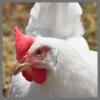
Information is still scarce regarding the effect of dietary trace mineral patterns on the intestinal health of broilers. The results indicated that dietary trace mineral pattern influenced intestinal health of broilers, and the appropriate pattern of trace minerals in the diet for intestinal health of broilers would be...
Read more
-

Aug
10
Interpretive Summary: Effect of 3-nitrooxypropanol on enteric methane emissions of feedlot cattle fed with a tempered barley-based diet with canola oil
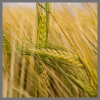
Livestock methane (CH4) is the main source of greenhouse gases (GHGs) in agriculture, contributing to 11.6% of global GHGs emissions from human-related activities. Therefore, mitigating CH4 emissions from ruminant animals is a great opportunity for meeting the current climate targets.
Read more
 AugInterpretive Summary: USDA to increase competition in agriculture sector
AugInterpretive Summary: USDA to increase competition in agriculture sector The United States Department of Agriculture (USDA) has announced a partnership with attorney generals in 31 states and the District of Columbia to enhance competition and protect consumers in food and agricultural markets, including in grocery, meat, and poultry processing, and other markets. The partnership will assist state attorneys general in tackling anticompetitive market structures in agriculture and related industries that are raising prices and limiting choices for consumers and producers.
The United States Department of Agriculture (USDA) has announced a partnership with attorney generals in 31 states and the District of Columbia to enhance competition and protect consumers in food and agricultural markets, including in grocery, meat, and poultry processing, and other markets. The partnership will assist state attorneys general in tackling anticompetitive market structures in agriculture and related industries that are raising prices and limiting choices for consumers and producers. AugInterpretive Summary: The effects of stocking density on behavior and biological functioning of penned sheep under continuous heat load conditions
AugInterpretive Summary: The effects of stocking density on behavior and biological functioning of penned sheep under continuous heat load conditions There is a high demand for Australian sheep to be exported to the Middle East, and for live export voyages which depart during an Australian winter, heat, and humidity increase rapidly as ships cross the equator and approach destination countries. Concern about sheep becoming heat stressed during these voyages has increased, and industry attention has focused on the potential role of stocking density in determining heat stress risk in this context.
There is a high demand for Australian sheep to be exported to the Middle East, and for live export voyages which depart during an Australian winter, heat, and humidity increase rapidly as ships cross the equator and approach destination countries. Concern about sheep becoming heat stressed during these voyages has increased, and industry attention has focused on the potential role of stocking density in determining heat stress risk in this context. AugInterpretive Summary: Methane emissions and 13C composition from beef steers consuming binary C3–C4 diets
AugInterpretive Summary: Methane emissions and 13C composition from beef steers consuming binary C3–C4 diets Investigating methods for reducing enteric methane emissions from ruminant livestock are important to reduce environmental impacts and improving production efficiency through reduced energy losses. This experiment evaluated the effects of increasing proportion of rhizoma peanut hay (a C3 legume) into bahiagrass hay (a C4 grass) on intake and methane production in beef steers.
Investigating methods for reducing enteric methane emissions from ruminant livestock are important to reduce environmental impacts and improving production efficiency through reduced energy losses. This experiment evaluated the effects of increasing proportion of rhizoma peanut hay (a C3 legume) into bahiagrass hay (a C4 grass) on intake and methane production in beef steers. AugInterpretive Summary: Duration of ergovaline exposure influences serotonin-mediated vasoactivity of bovine mesenteric vasculature
AugInterpretive Summary: Duration of ergovaline exposure influences serotonin-mediated vasoactivity of bovine mesenteric vasculature Consumption of ergot alkaloids found in endophyte-infected tall fescue can lead to symptoms of fescue toxicosis, such as vasoconstriction, in ruminant livestock species. Ergovaline is one of the primary ergot alkaloids responsible for causing vasoconstriction when toxic varieties of fescue are consumed.
Consumption of ergot alkaloids found in endophyte-infected tall fescue can lead to symptoms of fescue toxicosis, such as vasoconstriction, in ruminant livestock species. Ergovaline is one of the primary ergot alkaloids responsible for causing vasoconstriction when toxic varieties of fescue are consumed. AugInterpretive Summary: Endocrine changes during the peripartal period related to colostrogenesis in mammalian species
AugInterpretive Summary: Endocrine changes during the peripartal period related to colostrogenesis in mammalian species This manuscript reviews and compares hormonal and functional changes occurring in the conceptus (embryo and its extra-embryonic membranes) and their effects on the mammary gland during development from pregnancy to colostrum formation and milk production in multiple mammalian species. Declining activity of gestagens at the end of pregnancy is crucial to allow for both parturition and onset of milk production in most mammals.
This manuscript reviews and compares hormonal and functional changes occurring in the conceptus (embryo and its extra-embryonic membranes) and their effects on the mammary gland during development from pregnancy to colostrum formation and milk production in multiple mammalian species. Declining activity of gestagens at the end of pregnancy is crucial to allow for both parturition and onset of milk production in most mammals. AugInterpretive Summary: Metagenomics analysis reveals the performance of homo- and heterofermentative lactic acid bacteria in alfalfa silage fermentation, bacterial community, and functional profiles
AugInterpretive Summary: Metagenomics analysis reveals the performance of homo- and heterofermentative lactic acid bacteria in alfalfa silage fermentation, bacterial community, and functional profiles Current studies are aimed towards utilizing certain lactic acid bacteria (LAB) strains with high-yielding beneficial organic acid production for enhancing the quality of forages during preservation (otherwise known as ensiling) and to improve animal feed production.
Current studies are aimed towards utilizing certain lactic acid bacteria (LAB) strains with high-yielding beneficial organic acid production for enhancing the quality of forages during preservation (otherwise known as ensiling) and to improve animal feed production. AugInterpretive Summary: Melatonin supplementation promotes muscle fiber hypertrophy and regulates lipid metabolism of skeletal muscle in weaned piglets
AugInterpretive Summary: Melatonin supplementation promotes muscle fiber hypertrophy and regulates lipid metabolism of skeletal muscle in weaned piglets Due to its extensive biological functions, melatonin has been widely used in animal production in recent years. The purpose of this study was to investigate the effects of melatonin on growth performance, muscle development, and lipid metabolism of weaned piglets.
Due to its extensive biological functions, melatonin has been widely used in animal production in recent years. The purpose of this study was to investigate the effects of melatonin on growth performance, muscle development, and lipid metabolism of weaned piglets. AugInterpretive Summary: Forages and Pastures Symposium: revisiting mechanisms, methods, and models for altering forage cell wall utilization for ruminants
AugInterpretive Summary: Forages and Pastures Symposium: revisiting mechanisms, methods, and models for altering forage cell wall utilization for ruminants The underlying principles of forage cell wall utilization by ruminants have been known for over 50 years, but a significant amount of knowledge of the structure and synthesis of critical components of the plant cell wall, mechanisms and methods to alter its digestibility, and assessment techniques to quantify its components as well as their fermentability has been accumulated in the last 30 years.
The underlying principles of forage cell wall utilization by ruminants have been known for over 50 years, but a significant amount of knowledge of the structure and synthesis of critical components of the plant cell wall, mechanisms and methods to alter its digestibility, and assessment techniques to quantify its components as well as their fermentability has been accumulated in the last 30 years. AugInterpretive Summary: Effects of dietary zinc/copper ratios on the metabolism of zinc and copper in weaned pigs
AugInterpretive Summary: Effects of dietary zinc/copper ratios on the metabolism of zinc and copper in weaned pigs Zinc oxide and copper sulfate are commonly used as growth promoters and alternatives to antibiotics to prevent diarrhea in weaned piglets but their use in post-weaning pigs diets has been challenged due to environmental issues and concerns related to bacterial resistance to antibiotics and heavy metals.
Zinc oxide and copper sulfate are commonly used as growth promoters and alternatives to antibiotics to prevent diarrhea in weaned piglets but their use in post-weaning pigs diets has been challenged due to environmental issues and concerns related to bacterial resistance to antibiotics and heavy metals. AugInterpretive Summary: Dietary supplementation of Ocimum gratissimum improves growth performance and immune response in broilers under high ambient temperature
AugInterpretive Summary: Dietary supplementation of Ocimum gratissimum improves growth performance and immune response in broilers under high ambient temperature Ocimum gratissimum (OG) was found to have immunity boosting effect on Taiwan country chickens and broiler chickens raised in moderate ambient temperature in previous studies, and the current study investigates its potential on broilers raised in high ambient temperature.
Ocimum gratissimum (OG) was found to have immunity boosting effect on Taiwan country chickens and broiler chickens raised in moderate ambient temperature in previous studies, and the current study investigates its potential on broilers raised in high ambient temperature. AugInterpretive Summary: Relationships between body- and udder-related type traits with somatic cell counts and potential use for an early selection method for water buffaloes (Bubalus bubalis)
AugInterpretive Summary: Relationships between body- and udder-related type traits with somatic cell counts and potential use for an early selection method for water buffaloes (Bubalus bubalis) Some type traits (TTs) have been reported to affect somatic cell count (SCC) in bovine milk, which result in mastitis to some extent, but the correlation between SCC and TTs of water buffalo has been poorly understood. Here, a total of 1908 records from 678 buffaloes were investigated.
Some type traits (TTs) have been reported to affect somatic cell count (SCC) in bovine milk, which result in mastitis to some extent, but the correlation between SCC and TTs of water buffalo has been poorly understood. Here, a total of 1908 records from 678 buffaloes were investigated. AugInterpretive Summary: Transcriptomic analysis of ovarian follicles uncovers the crucial genes relevant to follicle selection and preovulatory hierarchy in hens
AugInterpretive Summary: Transcriptomic analysis of ovarian follicles uncovers the crucial genes relevant to follicle selection and preovulatory hierarchy in hens Chicken ovarian follicle development undergoes follicle recruitment, prehierarchy, follicle selection, preovulatory/hierarchy, and finally ovulation. The follicle selection and preovulatory hierarchy play a vital role in egg production of hens. However, underlying the mechanism of the key genes involved in these developmental events remains largely unknown.
Chicken ovarian follicle development undergoes follicle recruitment, prehierarchy, follicle selection, preovulatory/hierarchy, and finally ovulation. The follicle selection and preovulatory hierarchy play a vital role in egg production of hens. However, underlying the mechanism of the key genes involved in these developmental events remains largely unknown. AugInterpretive Summary: Protective effects of genistein on the production performance and lipid metabolism disorders in laying hens with fatty liver hemorrhagic syndrome by activation of the GPER–AMPK signaling pathways
AugInterpretive Summary: Protective effects of genistein on the production performance and lipid metabolism disorders in laying hens with fatty liver hemorrhagic syndrome by activation of the GPER–AMPK signaling pathways Fatty liver hemorrhagic syndrome (FLHS) is a nutritional and metabolic disease that seriously threatens the health and performance of laying hens, which is characterized by hepatic steatosis and lipid metabolism disorders. As an isoflavone phytoestrogen, genistein (GEN) exerts many beneficial functions, including alleviating lipid metabolism disorders and anti-inflammatory properties.
Fatty liver hemorrhagic syndrome (FLHS) is a nutritional and metabolic disease that seriously threatens the health and performance of laying hens, which is characterized by hepatic steatosis and lipid metabolism disorders. As an isoflavone phytoestrogen, genistein (GEN) exerts many beneficial functions, including alleviating lipid metabolism disorders and anti-inflammatory properties. AugInterpretive Summary: Reproductive microbiome and cytokine profiles associated with fertility outcomes of postpartum beef cows
AugInterpretive Summary: Reproductive microbiome and cytokine profiles associated with fertility outcomes of postpartum beef cows Efficiently producing cattle to feed a growing population can come with many challenges. A few challenges occur soon after a cow has given birth, and subsequent reproductive performance can be impacted. Bacteria within the reproductive tract can trigger an immune response and together play a role in affecting fertility in cows.
Efficiently producing cattle to feed a growing population can come with many challenges. A few challenges occur soon after a cow has given birth, and subsequent reproductive performance can be impacted. Bacteria within the reproductive tract can trigger an immune response and together play a role in affecting fertility in cows. AugInterpretive Summary: Evaluating differences between formulated dietary net energy values and net energy values determined from growth performance in finishing beef steers
AugInterpretive Summary: Evaluating differences between formulated dietary net energy values and net energy values determined from growth performance in finishing beef steers Feedlot growth performance and carcass data can be used to estimate dietary net energy values. The degree to which growth performance-predicted values agree with tabular energy values for feeds is an indication of how accurately the California Net Energy System can be used to predict cattle growth performance.
Feedlot growth performance and carcass data can be used to estimate dietary net energy values. The degree to which growth performance-predicted values agree with tabular energy values for feeds is an indication of how accurately the California Net Energy System can be used to predict cattle growth performance. AugInterpretive Summary: Calves severely affected by bovine respiratory disease have reduced protection against histone toxicity and exhibit lower complement activity
AugInterpretive Summary: Calves severely affected by bovine respiratory disease have reduced protection against histone toxicity and exhibit lower complement activity Bovine respiratory disease (BRD) remains the leading cause of feedlot calf sickness and death. In respiratory disease affecting humans and mice, major tissue damage is caused by release of histones. Histones are proteins found in the nucleus of cells that condense DNA, however, cells that become damaged release histones extracellularly.
Bovine respiratory disease (BRD) remains the leading cause of feedlot calf sickness and death. In respiratory disease affecting humans and mice, major tissue damage is caused by release of histones. Histones are proteins found in the nucleus of cells that condense DNA, however, cells that become damaged release histones extracellularly. AugInterpretive Summary: Invited review: integration of technologies and systems for precision animal agriculture—a case study on precision dairy farming
AugInterpretive Summary: Invited review: integration of technologies and systems for precision animal agriculture—a case study on precision dairy farming Precision technologies are revolutionizing animal agriculture by enhancing the management of animal welfare and productivity. To fully realize the potential benefits of precision livestock farming (PLF), the development and application of digital technologies are needed to facilitate the responsible and sustainable intensification of livestock production over the next several decades.
Precision technologies are revolutionizing animal agriculture by enhancing the management of animal welfare and productivity. To fully realize the potential benefits of precision livestock farming (PLF), the development and application of digital technologies are needed to facilitate the responsible and sustainable intensification of livestock production over the next several decades. AugInterpretive Summary: Impact of liquid diet supplementation while suckling and weaning age on nutritional status, intestinal health, and immunity of piglets pre- and post-weaning
AugInterpretive Summary: Impact of liquid diet supplementation while suckling and weaning age on nutritional status, intestinal health, and immunity of piglets pre- and post-weaning Antimicrobial resistance, induced by increased usage of antimicrobials, is a threat raising economic and public health concerns. The great amount of antibiotics used in the animal production and especially in the pig industry, where the greatest part of all prescribed antibiotics is used for treatments of diarrhea in newly weaned piglets.
Antimicrobial resistance, induced by increased usage of antimicrobials, is a threat raising economic and public health concerns. The great amount of antibiotics used in the animal production and especially in the pig industry, where the greatest part of all prescribed antibiotics is used for treatments of diarrhea in newly weaned piglets. AugInterpretive Summary: Dietary trace mineral pattern influences gut microbiota and intestinal health of broilers
AugInterpretive Summary: Dietary trace mineral pattern influences gut microbiota and intestinal health of broilers Information is still scarce regarding the effect of dietary trace mineral patterns on the intestinal health of broilers. The results indicated that dietary trace mineral pattern influenced intestinal health of broilers, and the appropriate pattern of trace minerals in the diet for intestinal health of broilers would be...
Information is still scarce regarding the effect of dietary trace mineral patterns on the intestinal health of broilers. The results indicated that dietary trace mineral pattern influenced intestinal health of broilers, and the appropriate pattern of trace minerals in the diet for intestinal health of broilers would be... AugInterpretive Summary: Effect of 3-nitrooxypropanol on enteric methane emissions of feedlot cattle fed with a tempered barley-based diet with canola oil
AugInterpretive Summary: Effect of 3-nitrooxypropanol on enteric methane emissions of feedlot cattle fed with a tempered barley-based diet with canola oil Livestock methane (CH4) is the main source of greenhouse gases (GHGs) in agriculture, contributing to 11.6% of global GHGs emissions from human-related activities. Therefore, mitigating CH4 emissions from ruminant animals is a great opportunity for meeting the current climate targets.
Livestock methane (CH4) is the main source of greenhouse gases (GHGs) in agriculture, contributing to 11.6% of global GHGs emissions from human-related activities. Therefore, mitigating CH4 emissions from ruminant animals is a great opportunity for meeting the current climate targets.



